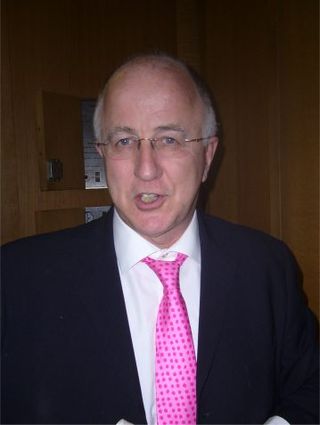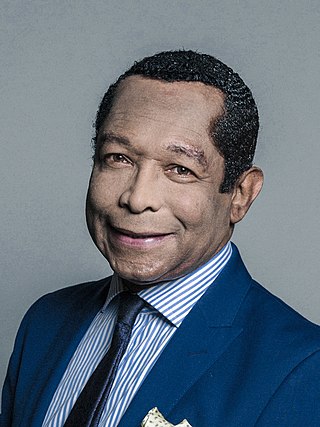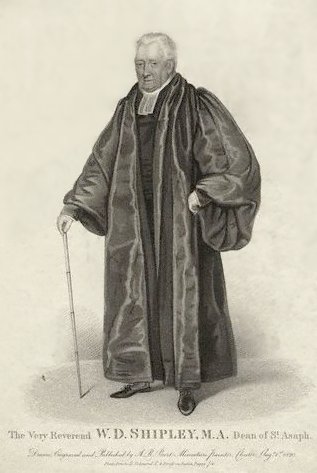
The Parliament of the United Kingdom of Great Britain and Northern Ireland is the supreme legislative body of the United Kingdom, and may also legislate for the Crown Dependencies and the British Overseas Territories. It meets at the Palace of Westminster in London. Parliament possesses legislative supremacy and thereby holds ultimate power over all other political bodies in the United Kingdom and the Overseas Territories. While Parliament is bicameral, it has three parts: the sovereign, the House of Lords, and the House of Commons. The three parts acting together to legislate may be described as the King-in-Parliament. The Crown normally acts on the advice of the prime minister, and the powers of the House of Lords are limited to only delaying legislation; thus power is de facto vested in the House of Commons.

Whilst the House of Lords of the United Kingdom is the upper chamber of Parliament and has government ministers, for many centuries it had a judicial function. It functioned as a court of first instance for the trials of peers and for impeachments, and as a court of last resort in the United Kingdom and prior, the Kingdom of Great Britain and the Kingdom of England.
Eric Evlyn Illsley is a former British Labour politician who was the Member of Parliament (MP) for Barnsley Central from 1987 until 2011. He was a Labour Party representative until suspended from the party after being charged with false accounting as part of the United Kingdom Parliamentary expenses scandal, and then sat as an Independent. When he pleaded guilty to three counts of false accounting on 11 January 2011, he became the first sitting Member of Parliament to be convicted of a criminal offence in the scandal. Illsley resigned from the House of Commons on 8 February 2011, following his conviction, and was sentenced to 12 months' imprisonment on 10 February 2011.

Denis MacShane is a British former politician, author, commentator and convicted criminal who served as Minister of State for Europe from 2002 to 2005. He joined the Labour Party in 1970 and has held most party offices. He was Member of Parliament (MP) for Rotherham from 1994 to his forced resignation in 2012.
David Michael Chaytor is a former British Labour Party politician, who was the member of parliament (MP) for Bury North from 1997 to 2010. He was the first member of Parliament to be sentenced following the United Kingdom Parliamentary expenses scandal of 2009.

Elliot Anthony Morley is a British former Labour Party politician, who was the Member of Parliament (MP) for Glanford and Scunthorpe from 1987 to 1997 and then Scunthorpe from 1997 to 2010. In 2009, he was accused by The Daily Telegraph of continuing to claim parliamentary expenses for a mortgage that had already been repaid. Morley was prosecuted and on 7 April 2011 pleaded guilty in Southwark Crown Court to two counts of false accounting, involving over £30,000. On 20 May 2011, he was sentenced to 16 months' imprisonment. He was released from prison on 20 September 2011 having served a quarter of his sentence.
Margaret Mary Moran is a former Labour Party politician in the United Kingdom. Moran was the Member of Parliament (MP) for Luton South from the 1997 general election to 2010. In November 2012, jurors at Southwark Crown Court ruled that she had falsified her parliamentary expenses; she had been unable to stand trial because of mental health issues, but the case was nevertheless heard without her. Her fraudulent claims totalled more than £53,000, the highest amount by any politician in the United Kingdom parliamentary expenses scandal.

John David Beckett Taylor, Baron Taylor of Warwick is a member of the House of Lords in the Parliament of the United Kingdom. In 1996, at the age of 44, he became one of the youngest people in the upper house.
The privilege of peerage is the body of special privileges belonging to members of the British peerage. It is distinct from parliamentary privilege, which applies only to those peers serving in the House of Lords and the members of the House of Commons, while Parliament is in session and forty days before and after a parliamentary session.
Ashley Mote was a British politician who was a member of the European Parliament (MEP) for South East England from 2004 to 2009. Elected representing the UK Independence Party, he became a non-inscrit one month into his term after UKIP withdrew the whip from him due to investigation into his expenses.
James Devine is a former Labour Party politician in Scotland. He was the Member of Parliament (MP) for Livingston from 2005 until 2010 and Chairman of the Scottish Labour Party between 1994 and 1995.
Paul Edward Winston White, Baron Hanningfield is a British politician and a member of the House of Lords. He served in various leadership roles in local government as a Conservative and was influential in the establishment of the Local Government Association. He achieved notoriety in the Parliamentary expenses scandal, when he was convicted of false accounting and sent to prison. Following his release he was suspended from the House of Lords for a time.
In the Parliament of the United Kingdom, Members of Parliament (MPs) can be suspended from sitting in the House of Commons by the Speaker for "disorderly conduct". The Speaker can order an MP removed from the house until the end of the day. The speaker more often "names" an MP.

The United Kingdom parliamentary expenses scandal was a major political scandal that emerged in 2009, concerning expense claims made by members of the British Parliament in both the House of Commons and the House of Lords over the previous years. The disclosure of widespread misuse of allowances and expenses permitted to members of Parliament (MPs) aroused widespread anger among the UK public and resulted in a large number of resignations, sackings, de-selections and retirement announcements together with public apologies and the repayment of expenses. Several members, and former members, of both the House of Commons and the House of Lords were prosecuted and sentenced to terms of imprisonment.
Sir John Henry Boulton Saunders, formerly styled The Hon. Mr Justice Saunders, is a retired High Court Judge of the King's Bench Division.

The Case of the Dean of St Asaph, formally R v Shipley, was the 1784 trial of William Davies Shipley, the Dean of St Asaph, for seditious libel. In the aftermath of the American War of Independence, electoral reform had become a substantial issue, and William Pitt the Younger attempted to bring a Bill before Parliament to reform the electoral system. In its support Shipley republished a pamphlet written by his brother-in-law, Sir William Jones, which noted the defects of the existing system and argued in support of Pitt's reforms. Thomas FitzMaurice, the brother of British Prime Minister Earl of Shelburne, reacted by indicting Shipley for seditious libel, a criminal offence which acted as "the government's chief weapon against criticism", since merely publishing something that an individual judge interpreted as libel was enough for a conviction; a jury was prohibited from deciding whether the material was actually libellous. The law was widely seen as unfair, and a Society for Constitutional Information was formed to pay Shipley's legal fees. With financial backing from the society Shipley was able to secure the services of Thomas Erskine KC as his barrister.

Parliamentary privilege in the United Kingdom is a legal immunity enjoyed by members of the House of Commons and House of Lords designed to ensure that parliamentarians are able to carry out their duties free from interference. The privileges are freedom of speech, freedom from arrest on civil matters, freedom of access to the sovereign, and that 'the most favourable construction should be placed on all the Houses' proceedings'. Fair and accurate reporting of the proceedings of parliament is also protected by parliamentary privilege.

Impeachment is a process in which the Parliament of the United Kingdom may prosecute and try individuals, normally holders of public office, for high treason or other crimes and misdemeanours. First used to try William Latimer, 4th Baron Latimer during the English Good Parliament of 1376, it was a rare mechanism whereby Parliament was able to arrest and depose ministers of the Crown. The last impeachment was that of Henry Dundas, 1st Viscount Melville in 1806; since then, other forms of democratic scrutiny have been favoured and the process has been considered as an obsolete—but still extant—power of Parliament.









